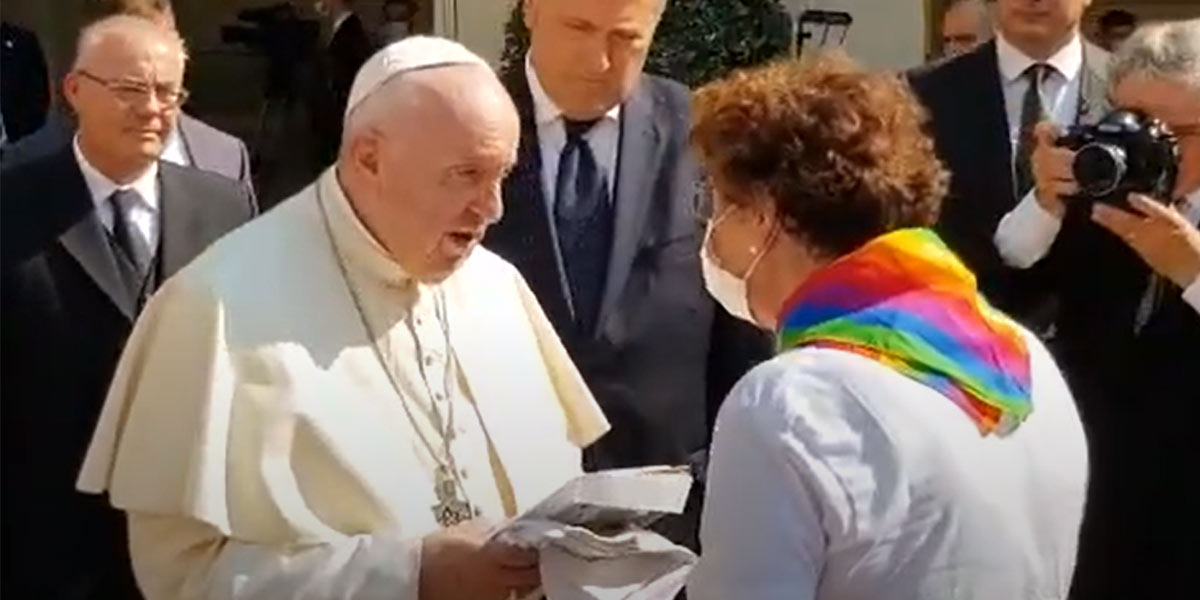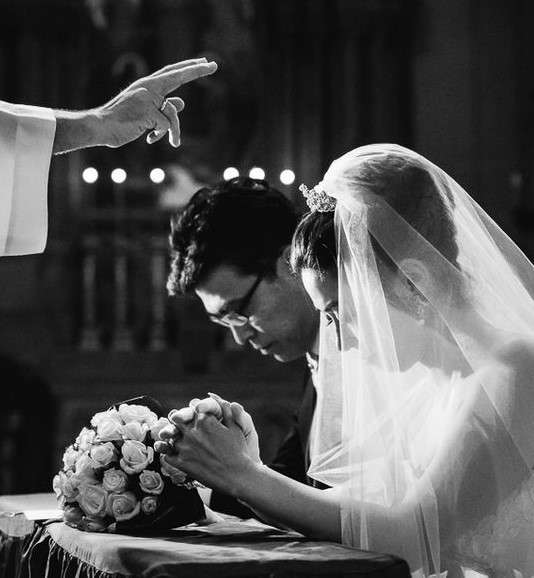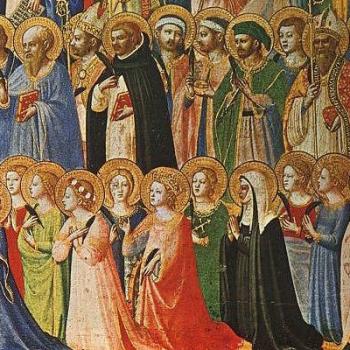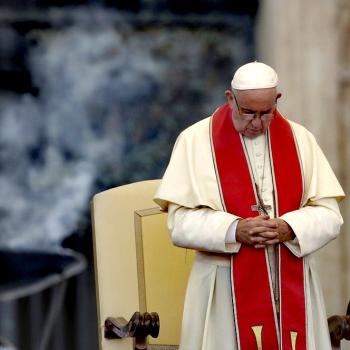On Wednesday, 14 February, it was Valentine’s day, it was also Ash Wednesday, which marked the beginning of Lent for Christians. Love was celebrated in a peculiar way just like the LGBTQ+ community celebrates love in a peculiar way.

The Catholic Church, often scrutinized for its stance on various social issues, including homosexuality, has faced accusations of being homophobic. However, it is essential to recognize that the Church’s teachings emphasize compassion, understanding, and respect for all individuals, regardless of their sexual orientation.

Firstly, the Catholic Church advocates for the dignity of every person, irrespective of their sexual orientation. The Catechism of the Catholic Church underscores the importance of treating individuals with respect, highlighting that they “must be accepted with respect, compassion, and sensitivity” (CCC 2358). This acknowledgment signals an emphasis on recognizing the inherent worth of every human being, irrespective of their sexual identity.
Pope Francis has conveyed a message of inclusivity and mercy. In a famous statement, he declared, “Who am I to judge?” when questioned about gay individuals seeking God. This statement reflects a more open and accepting attitude within the Church leadership, fostering an environment where individuals are not condemned based on their sexual orientation.
The Catholic Church’s opposition to same-sex marriage is often misconstrued as homophobia. The Church’s teachings, rooted in its understanding of marriage as a sacrament, emphasize the importance of the union between a man and a woman. However, this doctrinal position should not be equated with hatred or fear of LGBTQ+ individuals. It is a distinction between theological beliefs and the recognition of the human dignity inherent in every person.

In his 1968 encyclical letter, Humanae Vitae, Pope Paul VI taught the following about marriage between a man and a woman,
“Observing the Natural Law
11. The sexual activity, in which husband and wife are intimately and chastely united with one another, through which human life is transmitted, is, as the recent Council recalled, “noble and worthy.” It does not, moreover, cease to be legitimate even when, for reasons independent of their will, it is foreseen to be infertile. For its natural adaptation to the expression and strengthening of the union of husband and wife is not thereby suppressed. The fact is, as experience shows, that new life is not the result of each and every act of sexual intercourse. God has wisely ordered laws of nature and the incidence of fertility in such a way that successive births are already naturally spaced through the inherent operation of these laws. The Church, nevertheless, in urging men to the observance of the precepts of the natural law, which it interprets by its constant doctrine, teaches that each and every marital act must of necessity retain its intrinsic relationship to the procreation of human life.Union and Procreation
12. This particular doctrine, often expounded by the magisterium of the Church, is based on the inseparable connection, established by God, which man on his own initiative may not break, between the unitive significance and the procreative significance which are both inherent to the marriage act.
The reason is that the fundamental nature of the marriage act, while uniting husband and wife in the closest intimacy, also renders them capable of generating new life—and this as a result of laws written into the actual nature of man and of woman. And if each of these essential qualities, the unitive and the procreative, is preserved, the use of marriage fully retains its sense of true mutual love and its ordination to the supreme responsibility of parenthood to which man is called. We believe that our contemporaries are particularly capable of seeing that this teaching is in harmony with human reason
Faithfulness to God’s Design
13. Men rightly observe that a conjugal act imposed on one’s partner without regard to his or her condition or personal and reasonable wishes in the matter, is no true act of love, and therefore offends the moral order in its particular application to the intimate relationship of husband and wife. If they further reflect, they must also recognize that an act of mutual love which impairs the capacity to transmit life which God the Creator, through specific laws, has built into it, frustrates His design which constitutes the norm of marriage, and contradicts the will of the Author of life. Hence to use this divine gift while depriving it, even if only partially, of its meaning and purpose, is equally repugnant to the nature of man and of woman, and is consequently in opposition to the plan of God and His holy will. But to experience the gift of married love while respecting the laws of conception is to acknowledge that one is not the master of the sources of life but rather the minister of the design established by the Creator. Just as man does not have unlimited dominion over his body in general, so also, and with more particular reason, he has no such dominion over his specifically sexual faculties, for these are concerned by their very nature with the generation of life, of which God is the source. “Human life is sacred—all men must recognize that fact,” Our predecessor Pope John XXIII recalled. “From its very inception it reveals the creating hand of God.””
St. Pope John Paul II continued with the teachings in his 1981 apostolic exhortation Familiaris Consortio by saying,
“God created man in His own image and likeness: calling him to existence through love, He called him at the same time for love.
God is love and in Himself He lives a mystery of personal loving communion. Creating the human race in His own image and continually keeping it in being, God inscribed in the humanity of man and woman the vocation, and thus the capacity and responsibility, of love and communion. Love is therefore the fundamental and innate vocation of every human being.
As an incarnate spirit, that is a soul which expresses itself in a body and a body informed by an immortal spirit, man is called to love in his unified totality. Love includes the human body, and the body is made a sharer in spiritual love.
Christian revelation recognizes two specific ways of realizing the vocation of the human person in its entirety, to love: marriage and virginity or celibacy. Either one is, in its own proper form, an actuation of the most profound truth of man, of his being “created in the image of God.”
Consequently, sexuality, by means of which man and woman give themselves to one another through the acts which are proper and exclusive to spouses, is by no means something purely biological, but concerns the innermost being of the human person as such. It is realized in a truly human way only if it is an integral part of the love by which a man and a woman commit themselves totally to one another until death. The total physical self-giving would be a lie if it were not the sign and fruit of a total personal self-giving, in which the whole person, including the temporal dimension, is present: if the person were to withhold something or reserve the possibility of deciding otherwise in the future, by this very fact he or she would not be giving totally.
This totality which is required by conjugal love also corresponds to the demands of responsible fertility. This fertility is directed to the generation of a human being, and so by its nature it surpasses the purely biological order and involves a whole series of personal values. For the harmonious growth of these values a persevering and unified contribution by both parents is necessary.
The only “place” in which this self-giving in its whole truth is made possible is marriage, the covenant of conjugal love freely and consciously chosen, whereby man and woman accept the intimate community of life and love willed by God Himself which only in this light manifests its true meaning.””
Efforts within the Church to engage in dialogue and bridge understanding with the LGBTQ+ community have been observed. Some members of the clergy and laypeople are actively working towards fostering a more inclusive environment, challenging stereotypes, and promoting acceptance within the Church community.

While the Catholic Church’s teachings may differ from evolving societal norms on issues like same-sex marriage, the Church is not homophobic. The emphasis on respect, compassion, and inclusivity within its teachings, coupled with Pope Francis’s gestures of acceptance, signifies a nuanced approach that distinguishes theological beliefs from discriminatory attitudes. Understanding the complexities of the Church’s position allows for a more constructive dialogue about fostering a climate of tolerance and acceptance within religious communities.













